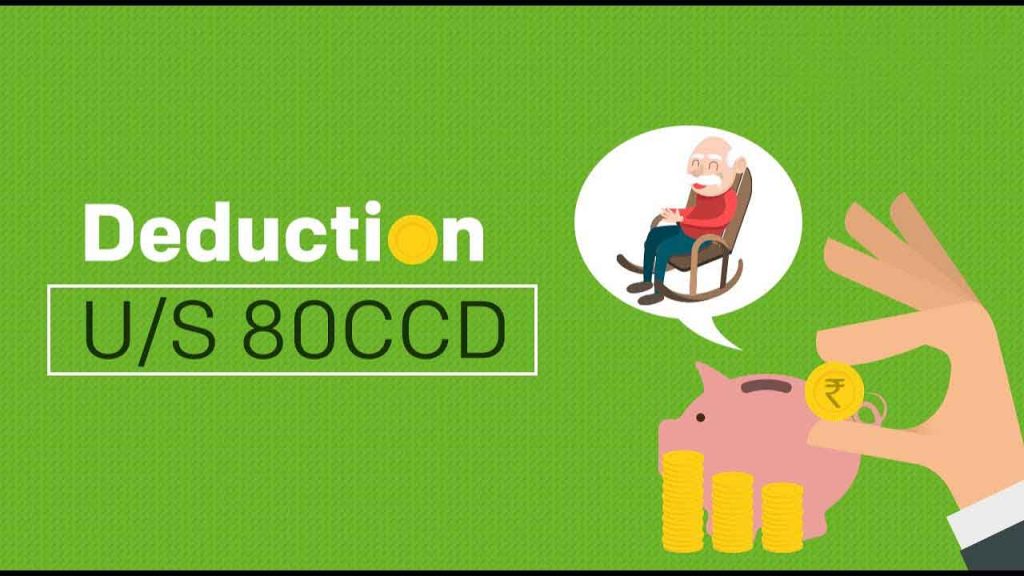Section 80CCD – Paying the income tax in a proper and timely way is vital to national economic development. You have to file your taxes before the deadline as an accountable Indian citizen. The Government has provided a variety of provisions in the Income Tax Act of 1961 which enable you to subtract from expenditure in particular avenues. Deductions u/s 80CCD are one such common alternative.
Section 80CCD applies to exemptions rendered offered to consumers against contributions rendered to the National Pension Scheme (NPS) or to Atal Pension Yojana (APY). Contributions rendered by workers to the NPS often fall under such a clause. NPS is a registered pension plan of the Central Government.
Section 80CCD is even further classified into 2 subsections
(i) Section 80CCD (1)

This subsection describes the guidelines for income tax deductions applicable to people for donations made to the NPS. It does not matter if the donation was rendered by a government employee, a private employee or a self-employed person. The rules of this section extend to all Indian people who contribute to the NPS or who are somewhere between 18 and 60 years of age. This refers to NRIs as well. Below are the two provisions of Section 80 of the CCD (1):
- The max deduction allowed under such a provision is 10% of the salary (basic + DA) or 10% of the gross income of the employee.
- Since FY 2017-18, this cap has indeed been expanded for self-employed persons to 20% of gross total income, with the cumulative limit currently fixed at ₹1,50,000/-for a particular FY.
A new addition to Section 80 of the CCD was adopted in the 2015 Union budget as Sub-Section 1B. Under such new rules, persons can demand an extra deduction of ₹50,000/-. This is accessible to both employees and self-employed people. This expanded the overall deduction permissible under Section 80CCD to ₹2,00,000/-. Tax advantages u/s 80CCD (1B) can be asserted in excess of the deductions permitted under Section 80CCD (1).
Must Read – Section 80GGA
(ii) Section 80CCD (2)
The rules laid down in Section 80 of the CCD (2) shall enter into force when the employer contributes to the NPS of the employee. In contrast to the contributions rendered to PPF and EPF, the employer can make contributions to NPS. The commitment rendered by the employer might be equivalent to or greater than the employee’s contribution. This portion extends only to employees and not to self-employed persons. Deductions under such a Section may be made over and below those u/s 80 of the CCD (1).
Conditions for deductions
The preceding are the different conditions covering the deductions in accordance with Section 80CCD.
- Salary and self-employed persons are subject to deduction under section 80CCD. Although it is compulsory for government officials, it is optional for all other persons.
- The overall deduction cap permissible u/s 80CCD is ₹2 Lakhs; it provides an additional deduction of ₹50,000/- accessible under Sub-Section 1B.
- Tax benefits u/s 80CCD cannot be asserted further under Section 80C, i.e. the cumulative deduction u/s 80C & Section 80 CCD cannot surpass ₹2 Lakhs.



